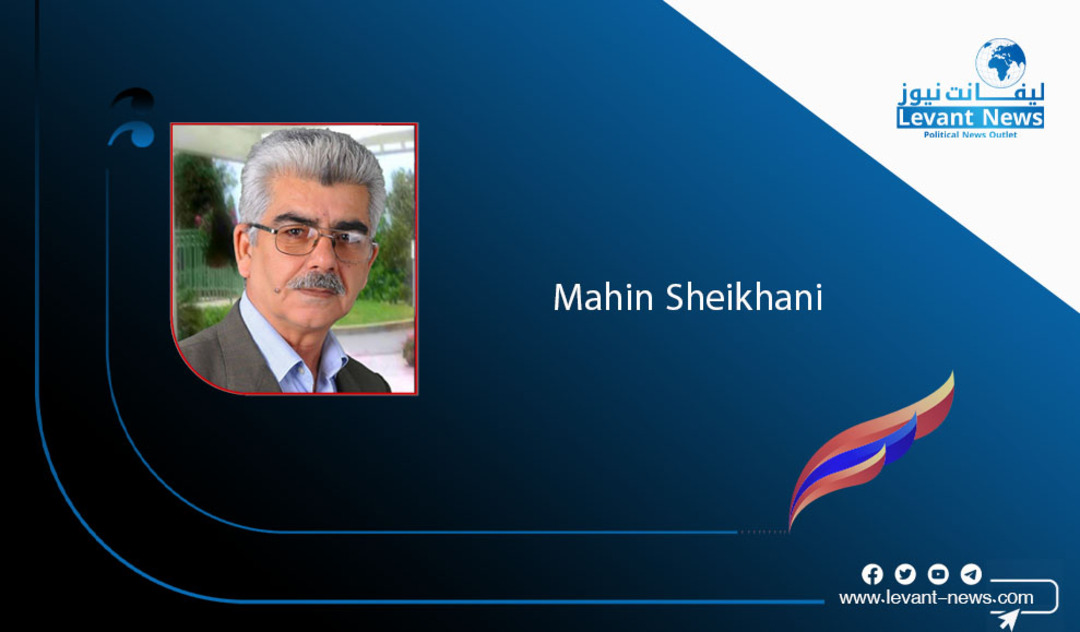-
The New Maps… Between the Sykes-Picot Legacy and Current Geopolitical Shifts

For over a century, since the scribbles of diplomats drew the borders of the Middle East in the 1916 Sykes-Picot Agreement, the Kurds have been at the heart of a complex geopolitical game. These scribbles did not merely divide the region between the French and British spheres of influence; they also sanctioned a new reality that left Kurdistan fragmented among newly formed states. Since then, the Kurdish geographical and resource-rich territory has become a source of grievance for a people deprived of the opportunity to establish their own state. Instead, their strategic location—between Turkey, Iran, Iraq, and Syria—has turned into a perpetual source of conflict over their identity and rights.
1. From the Arab Spring to Redrawing the Maps
With the eruption of the Arab revolutions in 2011, the rhetoric of a "New Middle East" emerged. It was no longer merely conspiracy theory but a tangible reality reflected in research reports and leaked maps.
However, what remained fixed amid this upheaval was that the Kurdish issue was the rejected exception:
- Syrian and Iraqi opposition accepted local administrations in Arab cities, but fiercely rejected any form of Kurdish autonomy.
- Regional powers (Turkey, Iran, the Syrian regime) differed on almost everything, but converged on preventing any Kurdish gains beyond superficial cultural rights.
This affirms that Sykes-Picot has not ended; rather, it is being recreated in new forms, with Kurds remaining the weakest link in the grandest of interests.
2. Turkey and the Return to Denial
At the dawn of the millennium, Turkey appeared with a relatively democratic face and spoke of "solving the Kurdish issue." But the Turkish regime quickly reverted to its old security doctrine:
- Military invasions of Kurdish areas in Syria (Afrin, Sere Kaniye – Ras al-Ain, Qamishli – Tel Abyad).
- Practices of displacement and demographic change reminiscent of the 1980s and 1990s.
- Official rhetoric portraying any Kurdish entity—even limited administrative ones—as existential threats.
Thus, the Kurdish cause was once again turned into a regional and international bargaining chip rather than a matter of fundamental rights for indigenous people.
3. Arab Opposition: Double Standards
A glaring paradox is that the forces that raised the slogans of "Freedom and Dignity" in Syria and Iraq opposed the same slogans when raised by the Kurds.
They demand democracy but reject federalism or decentralization when it concerns non-Arab rights.
They accept Turkish dominance and interventions but consider any Kurdish project "treason and division."
This double standard reflects not only a political stance but also the deepness of structural chauvinism within part of the Arab elite, where the homeland is reduced to ethnicity, and diversity is marginalized in favor of the illusion of a "united nation."
4. International Balances: From Trump to Post-Ukraine
In 2016, with Trump’s rise to power, it became clear that the U.S. viewed the Kurds solely through its strategic interests:
- supported them militarily against ISIS,
- but abandoned them politically in the face of Turkey’s invasion of Afrin and Sere Kaniye – Ras al-Ain.
This pattern persisted under subsequent administrations, where the Kurdish issue remained a functional tool in U.S. strategy: pressuring Turkey, balancing Iranian influence, or managing the Syrian conflict without a real solution.
Today, with the Ukraine war and shifts in the international system, energy lines and pipelines have become central to the conflict. Once again, Kurdistan’s geographical position—straddling oil and gas sources as well as transport routes—reasserts Kurds at the core of a geopolitics that exceeds their autonomous capacity.
5. What Changed Between 2016 and 2025?
Not much has fundamentally shifted in the international stance: major powers still treat Kurds as tools, not as political actors deserving a recognized state or entity.
The regional crisis has deepened: Turkish-Iranian-Arab tensions, and the collapse of most political solutions in Syria.
Kurdish isolation has worsened: Kurdish political forces failed to build stable regional or international alliances, and internal divisions remain a chronic weakness.
6. Between Fatalism and Possible Politics
We concluded in 2016 that: "The Middle East has no policy but awaiting what the great powers agree upon."
But a decade later, it’s clear that mere waiting is no longer sufficient. History proves that when Kurds possess unified political will and effectively manage their regions, they can impose themselves in the equation—even without full recognition.
In other words:
Kurds cannot break the "veto" of geography and international politics alone, but they can reduce the cost of denial by building solid institutions, developing flexible alliances, and turning the current reality into an unavoidable fact.
Mahin Sheikhani
You May Also Like
Popular Posts
Caricature
opinion
Report
ads
Newsletter
Subscribe to our mailing list to get the new updates!




















